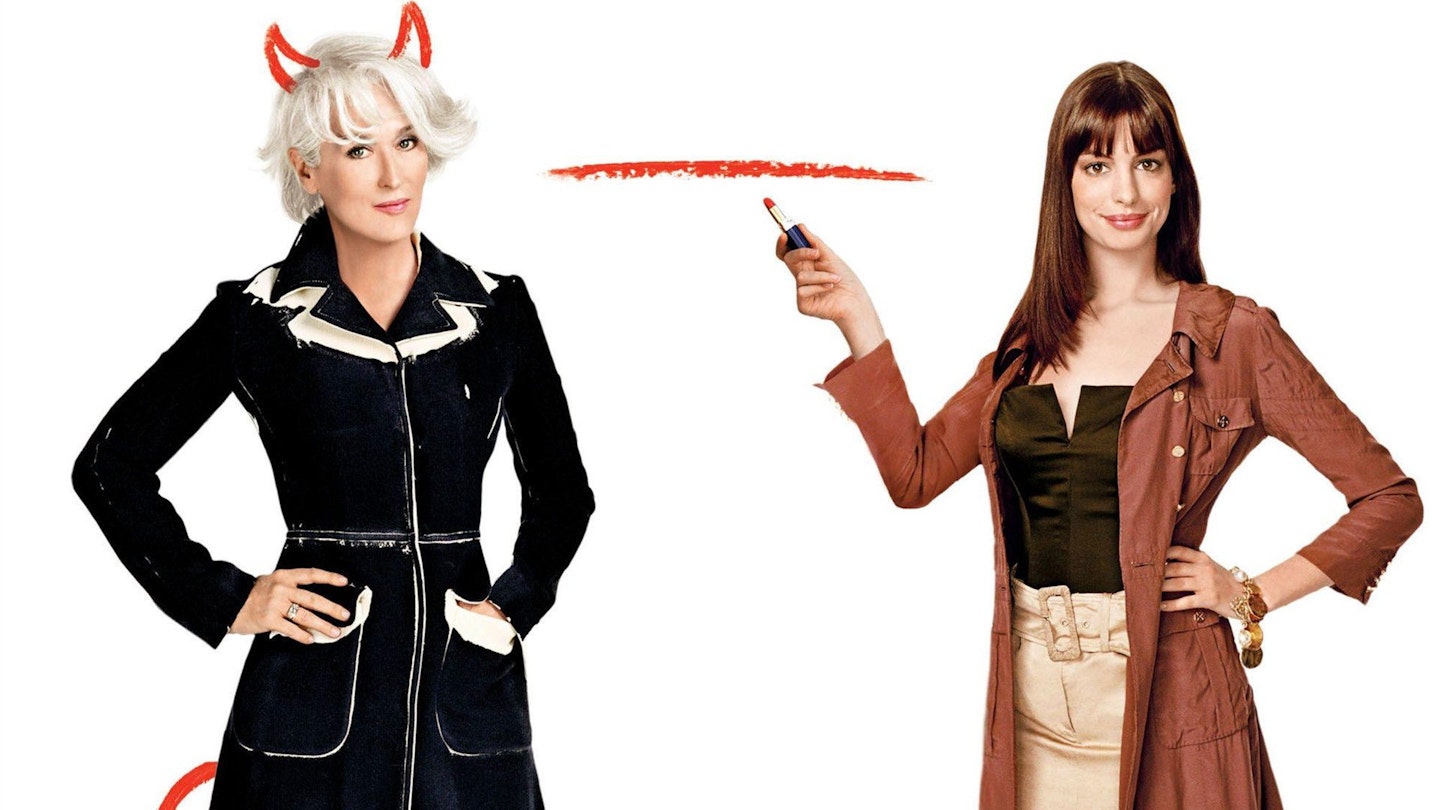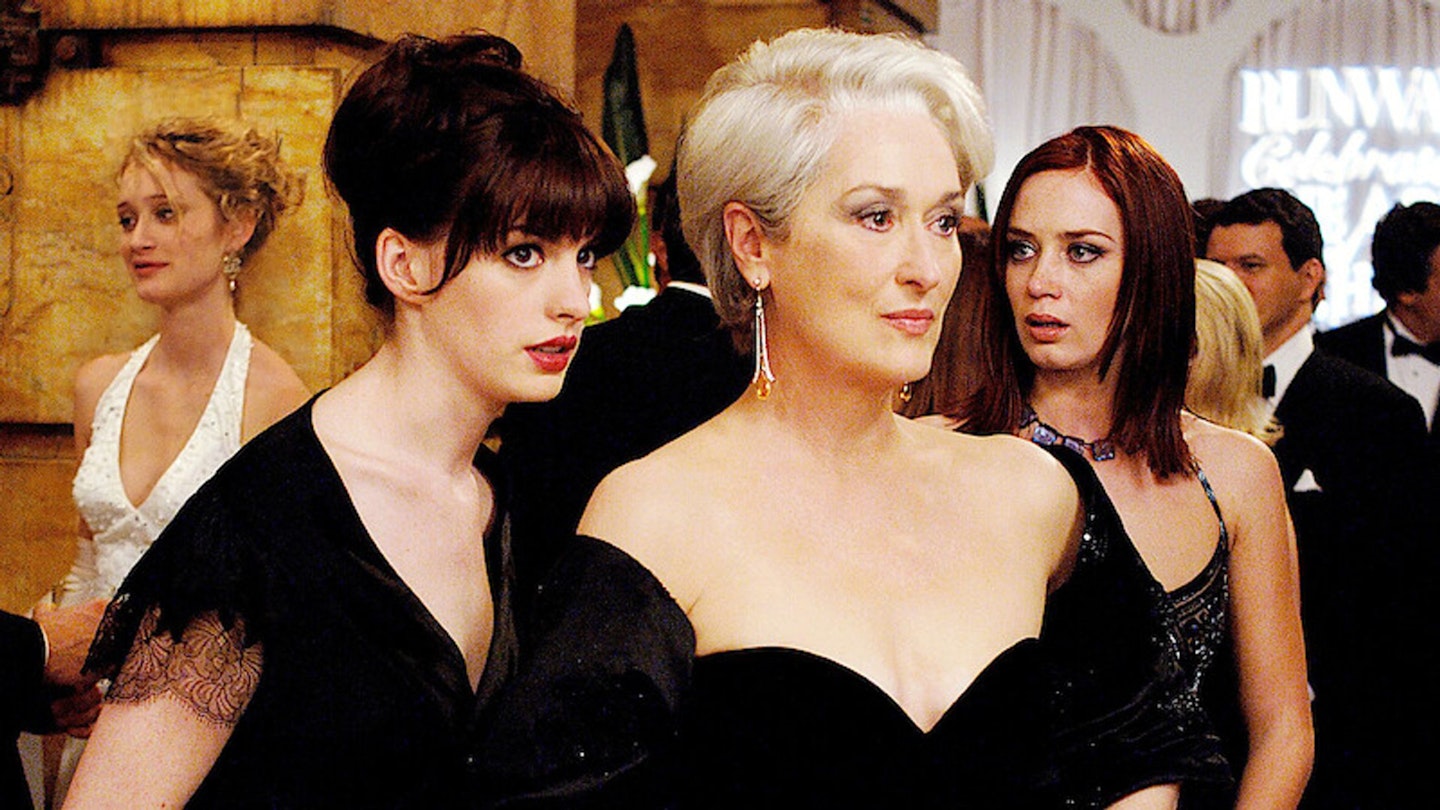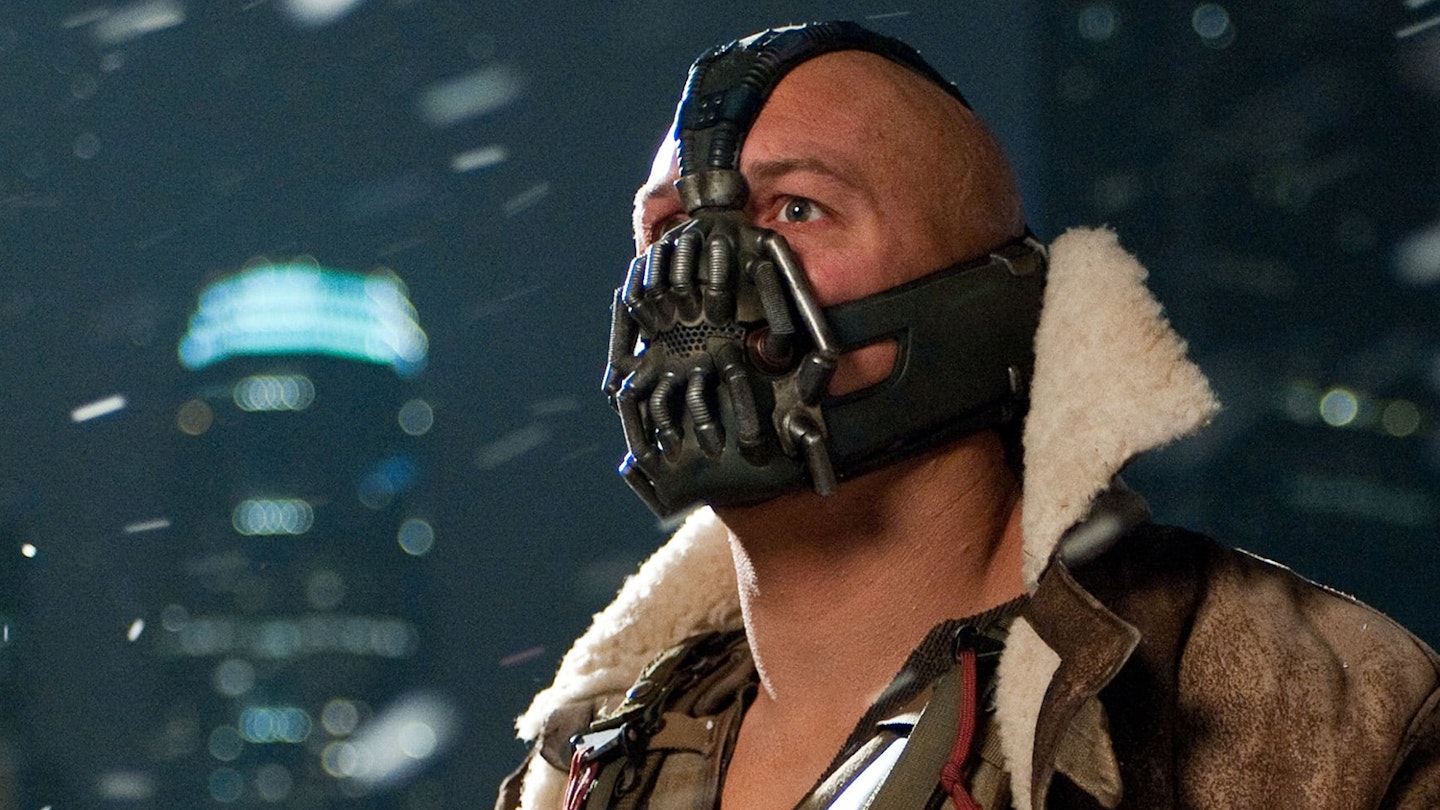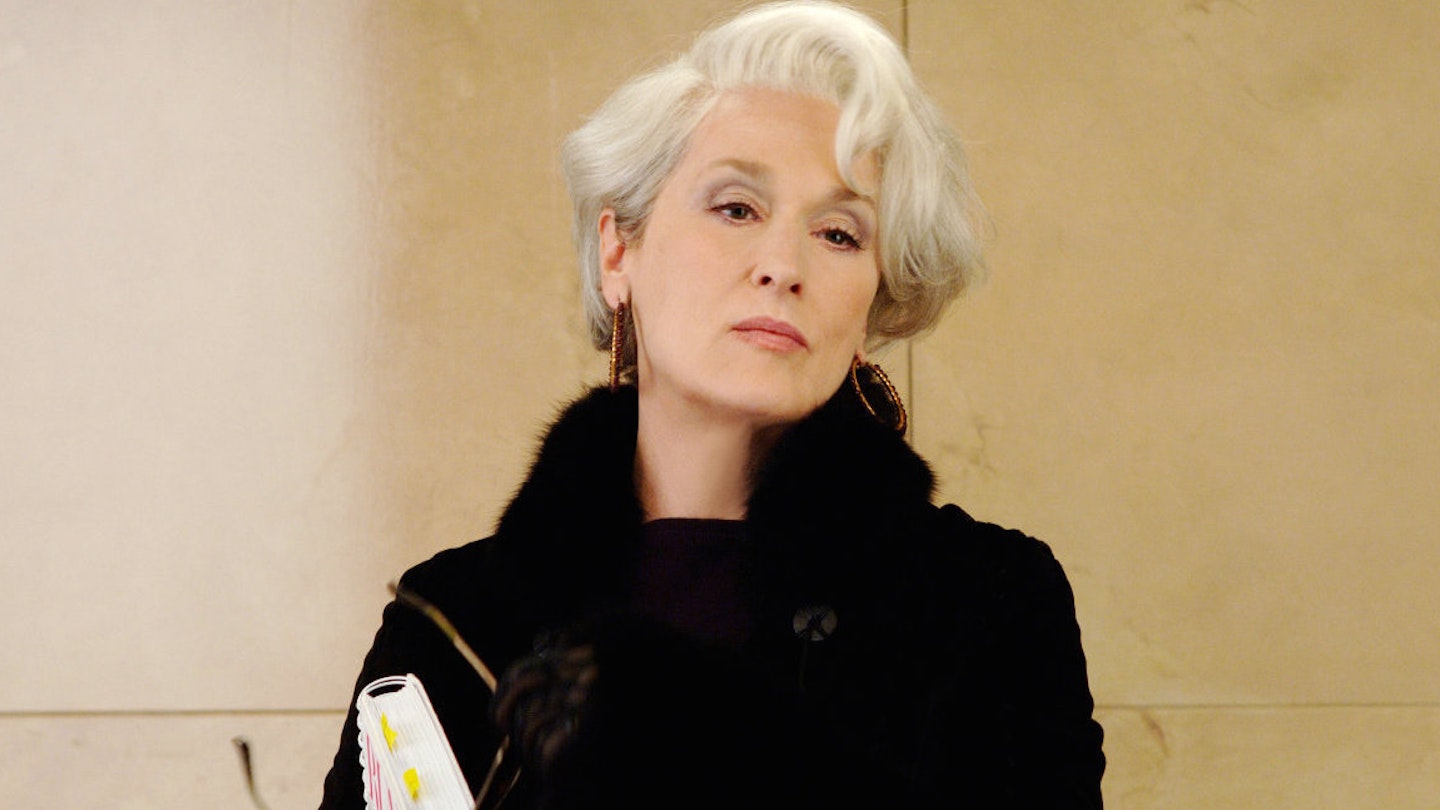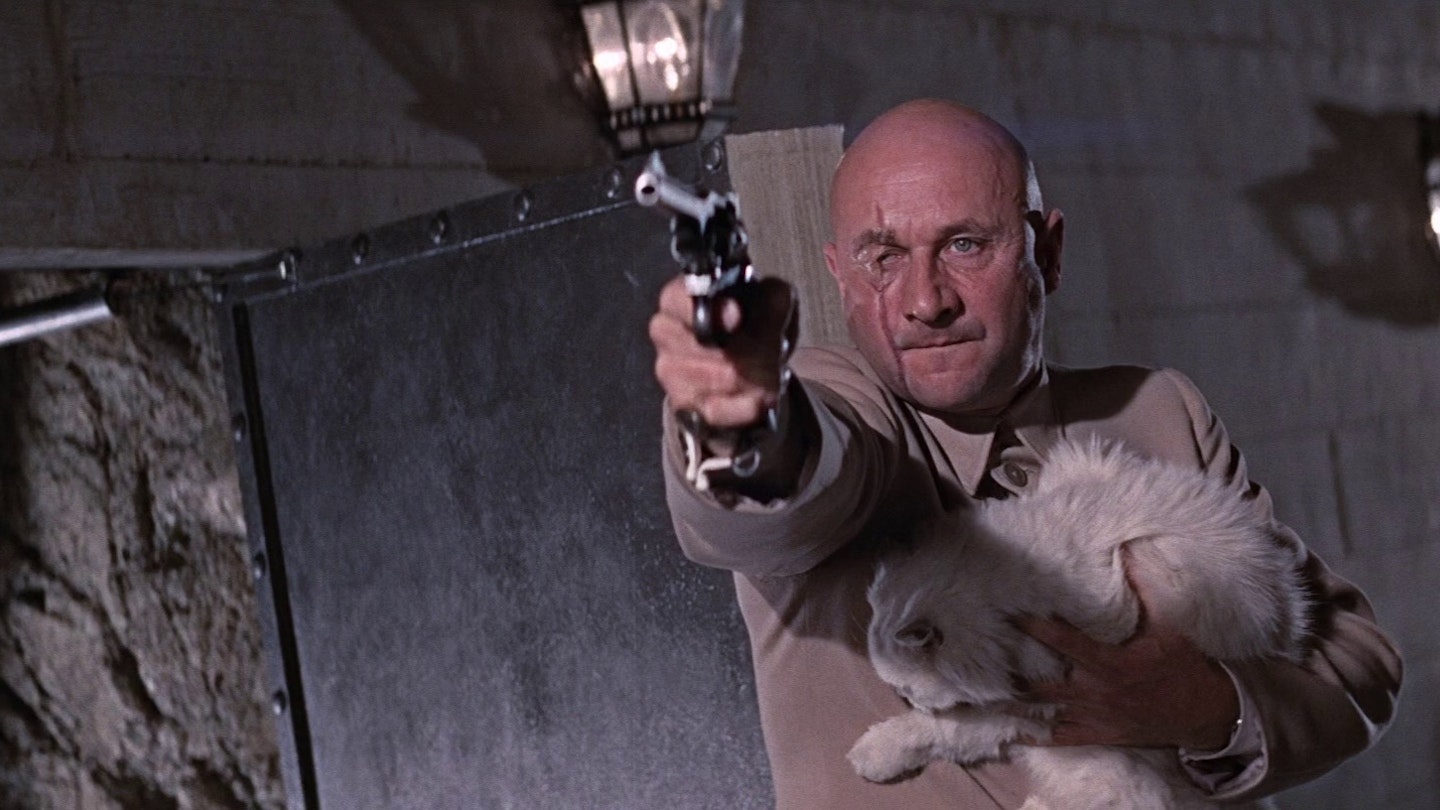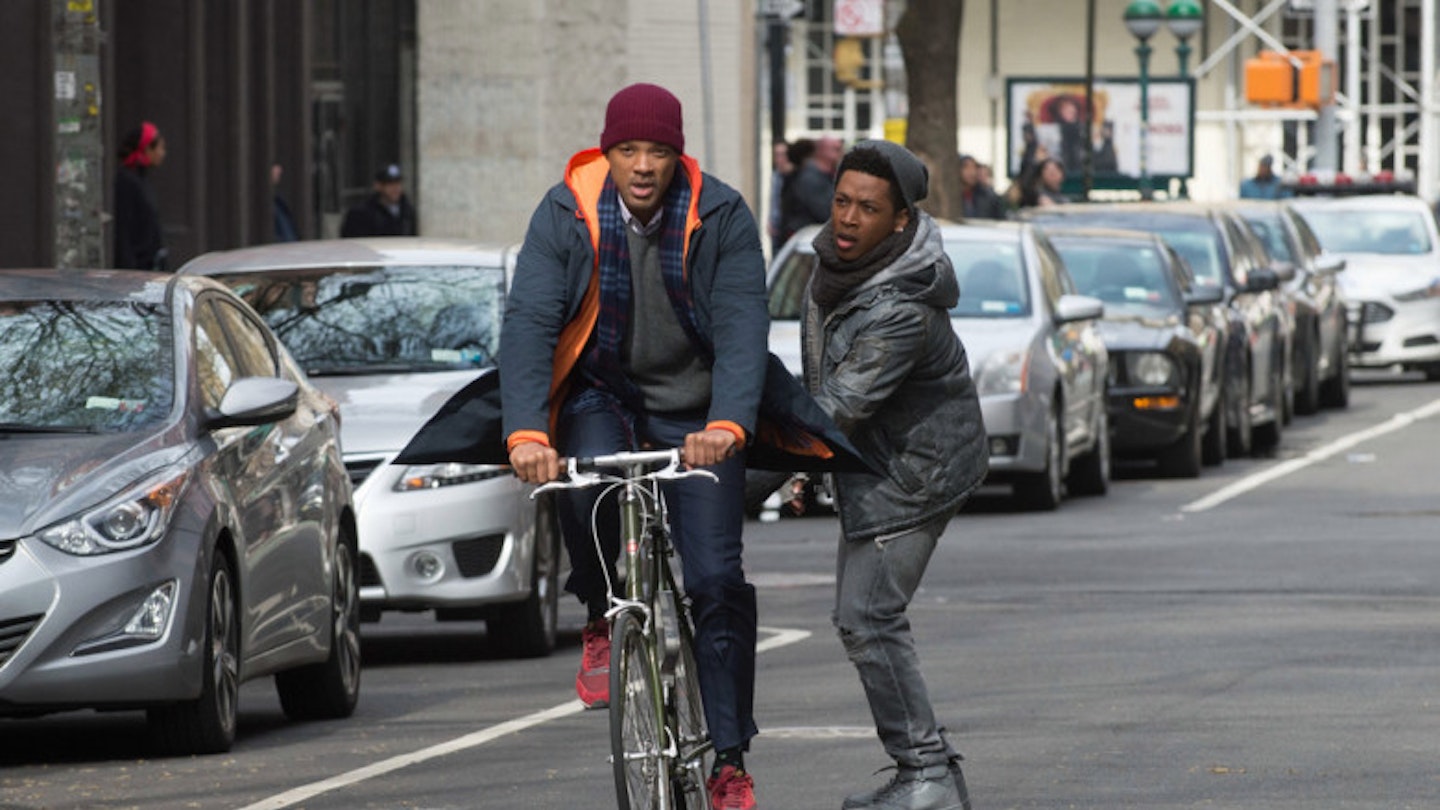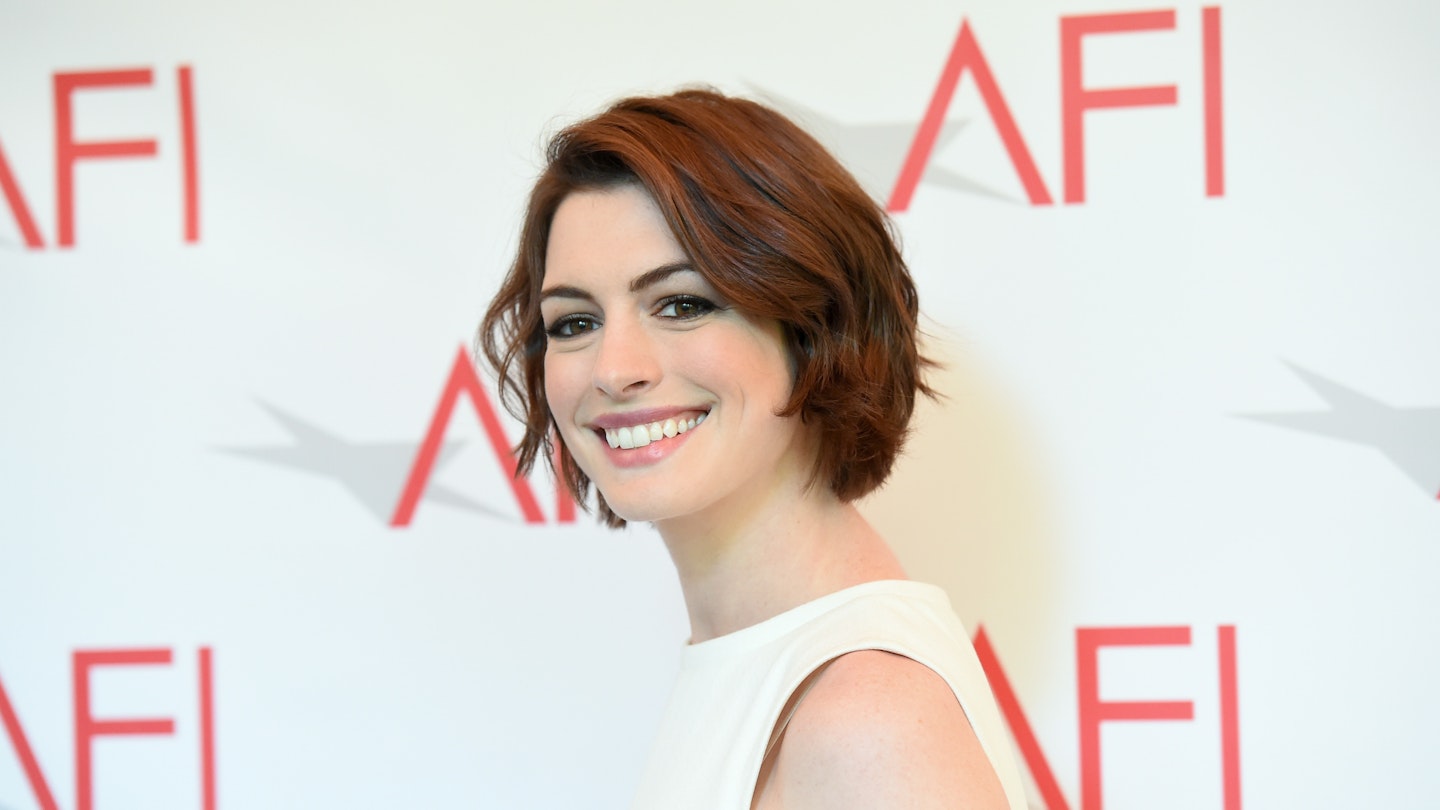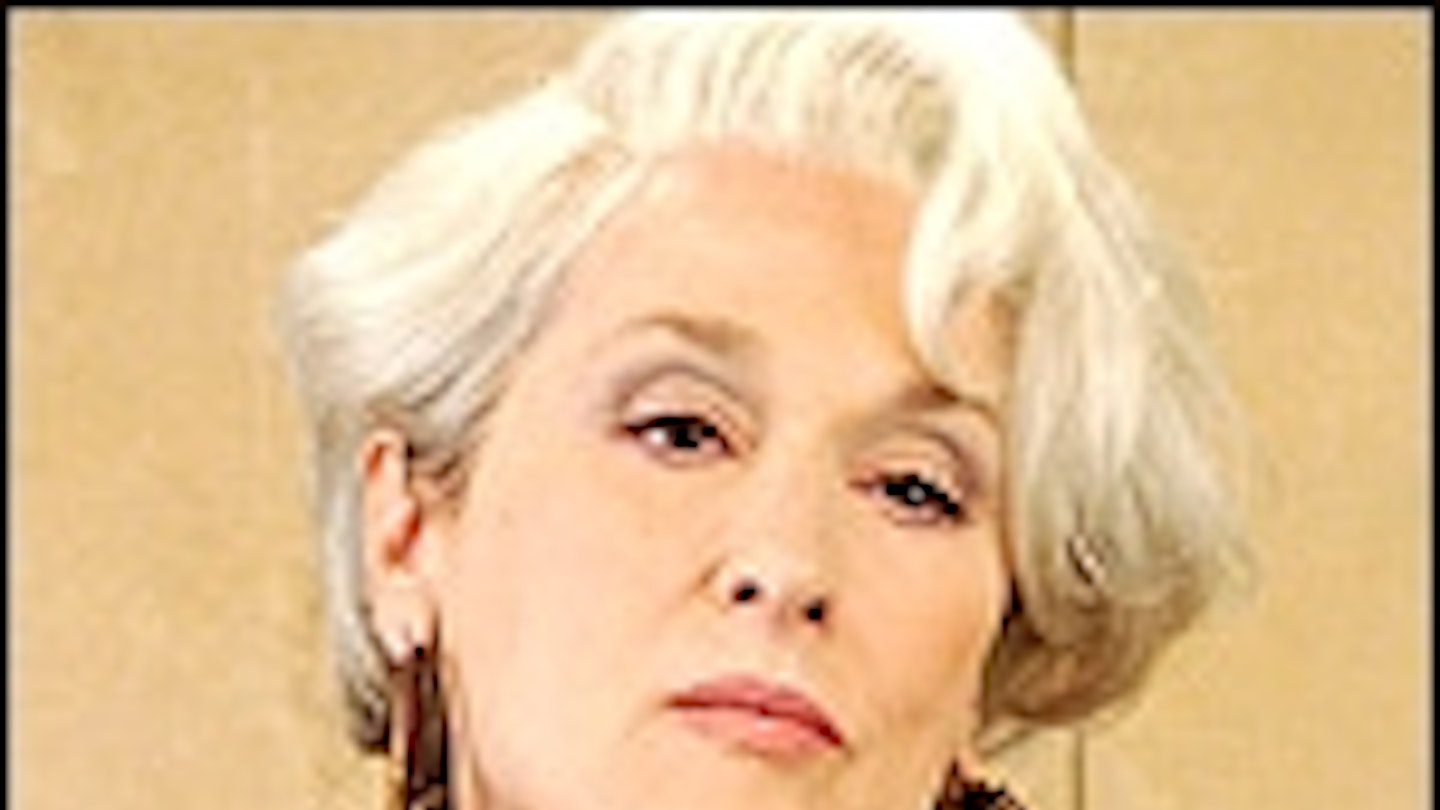It looks like a chick flick, dresses** **like a chick flick and name-checks a fashion house in its title, so you’d be forgiven for thinking that this is the long-rumoured Sex And The City movie — and the presence of sometime SATC director David Frankel at the helm would suggest you’re right. But under the to-die-for threads of The Devil Wears Prada lurks a career-minded morality tale, wherein the gender of the two leads is of little importance — except that male stars would do themselves an injury in heels this high.
While the traditional girly movie sees some allegedly frumpy but really foxy starlet make eyes at an unattainable babe-magnet before realising she loves her best guy mate, this focuses on the oft-overlooked question of what our heroine actually does for a living. Hence this leading lady lives in a credibly small and grungy apartment, dresses badly and seems to be unacquainted with either Max Factor or Estée Lauder. There are dishy men around — Entourage’s Adrian Grenier as her long-suffering boyfriend and Simon Baker as a predatory writer — but they’re window-dressing for an altogether more businesslike tale.
Andy’s story is about getting her foot on the career ladder, a familiar goal even for those who haven’t gone through the meat-grinder of media recruitment. But her starter job as junior assistant to Runway magazine editor Miranda Priestly soon sees her life being made over along with her wardrobe. In the lead, Anne Hathaway continues her transition from cheery and freshfaced child star to cheery and freshfaced but accomplished adult actress (see also Havoc, reviewed this issue), with a down-to-Earth charm that draws inevitable comparisons to a young Julia Roberts. But, come next March, it will be Meryl Streep who receives her umpteenth Oscar nod for her role as the deliciously nasty Priestly.
In the slave-and-tell novel on which the film is based, Priestly is an unkind caricature, allegedly based on legendary Vogue editor Anna Wintour. Streep, however, manages the formidable task of giving her capricious tyrant some humanity without diluting her essential awfulness. Speaking in a soft, almost seductive monotone, she tears strips out of her assistants and withers unlucky editors with a glance — all while retaining a strange, charismatic hold over all around her. Soon her malign influence begins to warp her newest assistant, until Andy too finds herself adopting the values of her Mephistophelean mentor. Miranda’s credo may be “fashion is fabulous” rather than “greed is good”, but make no mistake — this is Gordon Gekko with better hair.
It’s left to two other Runway employees to do the film’s comedic heavy-lifting. The ever-dependable Stanley Tucci injects pathos into an underwritten part as the very camp and extremely shrewd art editor Nigel, Miranda’s right-hand man. But it’s relative newcomer Emily Blunt (My Summer Of Love) who very nearly steals the film as Miranda’s senior assistant Emily, veering brilliantly between Miranda-lite bitchery and moments of real despair (admittedly, despair that is occasioned by the threat of taking away her couture, but it’s real nevertheless).
From New York high society to Paris Fashion Week, the combination of low comedy and high fashion works beautifully. There are plot elements and the odd line that seem forced or formulaic, but the overall impression is fresh and stylish — an autumn/winter show that’s worth a look, even for the sartorially-challenged.
